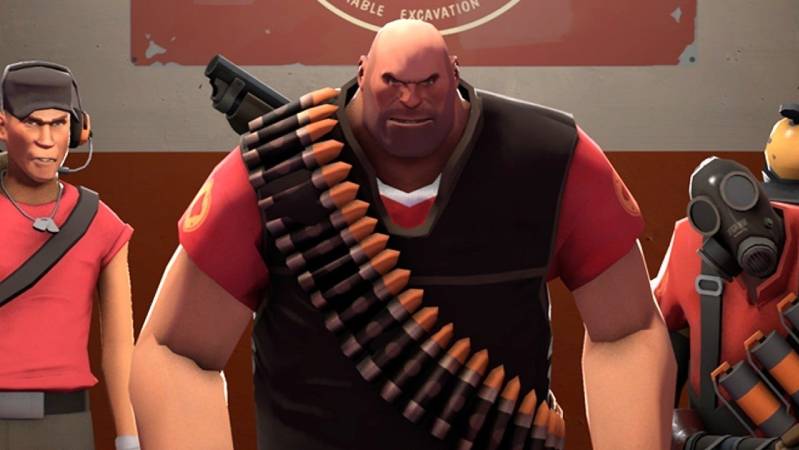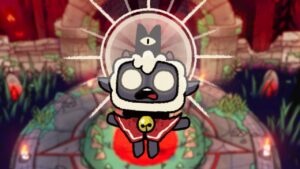Highlights:
- Team Fortress: Source 2, a fan project aiming to port Valve’s classic shooter to the Source 2 engine, has been shut down.
- Valve issued a DMCA takedown demand that blocked the group’s GitHub repositories.
- The cancellation of Team Fortress: Source 2 follows the cancellation of another fan project called Portal 64.
- Fan projects like these often emerge from the passionate gaming community who want to bring their favorite games to newer platforms or engines.
- However, companies like Valve have the right to protect their intellectual property and prevent unauthorized use or distribution.
Valve Shuts Down Team Fortress: Source 2 Fan Project
Team Fortress: Source 2, a fan project that aimed to bring Valve’s classic shooter to the Source 2 engine, has been officially shut down. The news came after Valve issued a DMCA (Digital Millennium Copyright Act) takedown demand which resulted in the blocking of the group’s GitHub repositories. This move follows the cancellation of another fan project called Portal 64. While fan projects like these often emerge from the passionate gaming community who want to bring their favorite games to newer platforms or engines, companies like Valve have the right to protect their intellectual property and prevent unauthorized use or distribution.
The cancellation of Team Fortress: Source 2 is a disappointment for fans who were looking forward to experiencing the beloved shooter in the enhanced graphics and performance of the Source 2 engine. The project aimed to recreate the original game with updated visuals and features, utilizing the power of the Source 2 engine to deliver a more immersive and modern gaming experience.
Portal 64, another fan project that sought to bring the classic puzzle-platformer Portal to the Nintendo 64, was also shut down recently. The cancellation of these projects serves as a reminder that fan projects can face legal obstacles when they infringe upon intellectual property rights. While fans may have the best intentions and a genuine love for a game, unauthorized use or distribution of copyrighted material is still a violation of the law.
The Role of Fan Projects
Fan projects have long been a part of gaming culture, with passionate fans dedicating their time and skills to create unofficial adaptations or expansions of their favorite games. These projects often emerge from a desire to explore new possibilities, update outdated games, or simply pay homage to beloved titles.
However, fan projects can be a double-edged sword. On one hand, they showcase the dedication and creativity of the gaming community, allowing fans to contribute to the legacy of their favorite franchises. On the other hand, they can also pose legal challenges for intellectual property owners, who must protect their rights and prevent unauthorized use or distribution of their creations.
Companies like Valve have the responsibility to safeguard their intellectual property and ensure that their games are used and distributed in accordance with their terms. This includes protecting against fan projects that may infringe upon their rights or use their intellectual property without permission.
The Legal Battle
When it comes to fan projects, the legal battle often revolves around copyright infringement. Copyright law grants creators exclusive rights to their original works, allowing them to control the use and distribution of their creations. This means that unauthorized use or distribution of copyrighted material, such as recreating a game without permission, can be considered copyright infringement.
In the case of Team Fortress: Source 2 and Portal 64, Valve issued DMCA takedown demands to protect their intellectual property. The DMCA is a U.S. copyright law that provides a framework for addressing copyright infringement on the internet. It allows copyright owners to request the removal of infringing content hosted by internet service providers or platforms, such as GitHub.
While fan projects may argue that they are not making a profit from their endeavors and are simply expressing their love for a game, this does not absolve them from legal liability. Copyright law does not distinguish between commercial and non-commercial use when it comes to infringement. Even if a fan project is not generating revenue, it can still be considered copyright infringement if it uses or distributes copyrighted material without permission.
Conclusion: Fan Projects and Intellectual Property
As disappointing as it may be for fans, the shutdown of Team Fortress: Source 2 and Portal 64 serves as a reminder of the importance of respecting intellectual property rights. While fan projects can be a testament to the passion and creativity of the gaming community, they must still operate within the boundaries set by copyright law.
Companies like Valve have the right to protect their intellectual property and prevent unauthorized use or distribution of their games. This is not only important for their financial interests but also for maintaining the integrity of their brands and ensuring that their creations are experienced as intended.
While it is unfortunate that fan projects like Team Fortress: Source 2 and Portal 64 have been shut down, it is crucial for fans to understand and respect the legal boundaries. Instead of recreating existing games without permission, fans can channel their creativity into original projects or support official releases and remasters. This way, they can still contribute to the gaming community while staying on the right side of the law.
Hot Take: Valve Shuts Down Team Fortress
The shutdown of fan projects like Team Fortress: Source 2 and Portal 64 may be a blow to fans, but it demonstrates the importance of intellectual property rights in the gaming industry. While it is understandable that fans want to bring their favorite games to new platforms or engines, it is crucial to respect the rights of the creators and the companies behind those games. By doing so, fans can continue to enjoy their favorite titles without infringing upon the rights of others.




